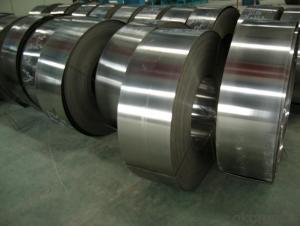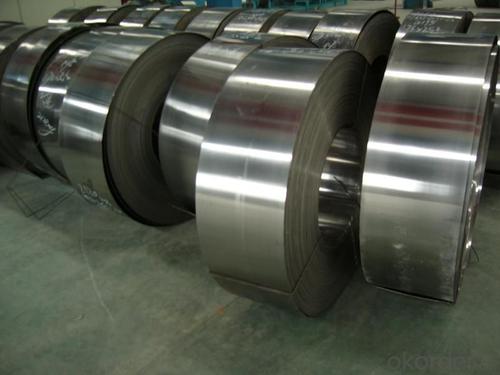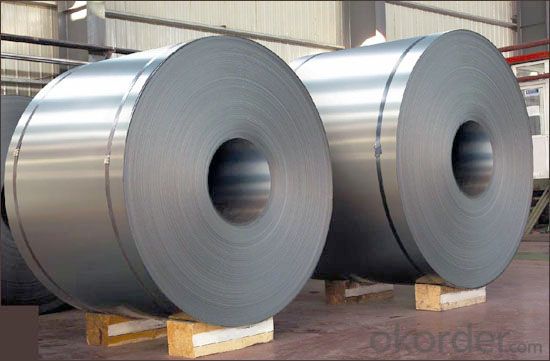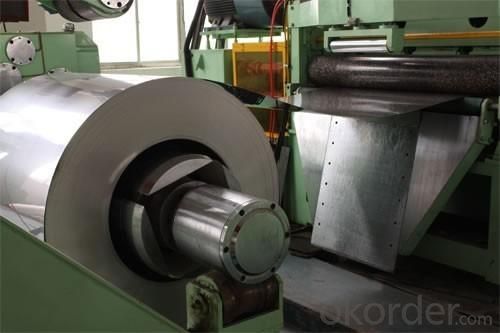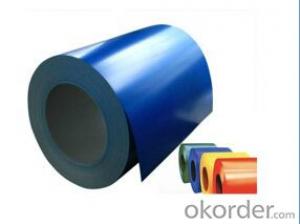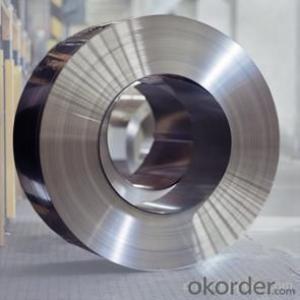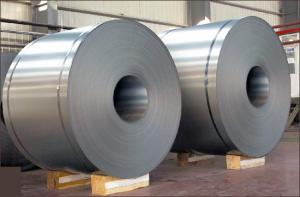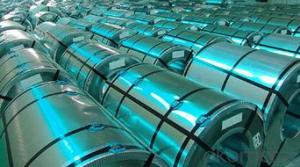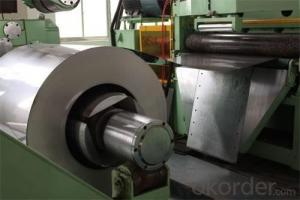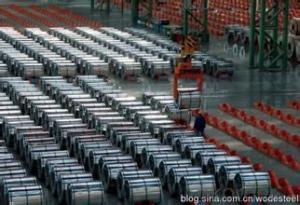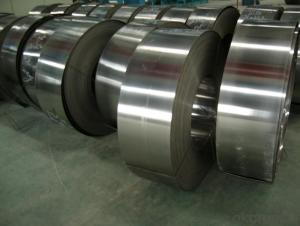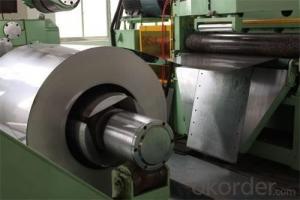Cold Rolled Steel Coil JIS G 3302 -Chinese Best Every Size
- Loading Port:
- China main port
- Payment Terms:
- TT OR LC
- Min Order Qty:
- 50 m.t.
- Supply Capability:
- 10000 m.t./month
OKorder Service Pledge
OKorder Financial Service
You Might Also Like
Cold Rolled Steel Coil JIS G 3302 -Chinese Best Every Size
1.Structure of Cold Rolled Steel Description:
The raw material of cold rolled steel coil/sheet is high quality hot rolled product, and after pickling continuous rolling, degreasing, annealing,skin pass,slitting and cut to length line etc. Along with it many kinds of new technology and new process of global cold rolling production have been applied. Therefore the quality of the goods could be guaranteed. The product is widely used in outdoor and interior decoration, furnishing manufacturing, home appliance, automobile etc.
2.Main Features of the Cold Rolled Steel:
• Excellent process capability
• Smooth and flat surface
• Workability, durability
• Excellent heat resistance performance
• High strength
• Good formability
• Good visual effect
3. Cold Rolled Steel Images
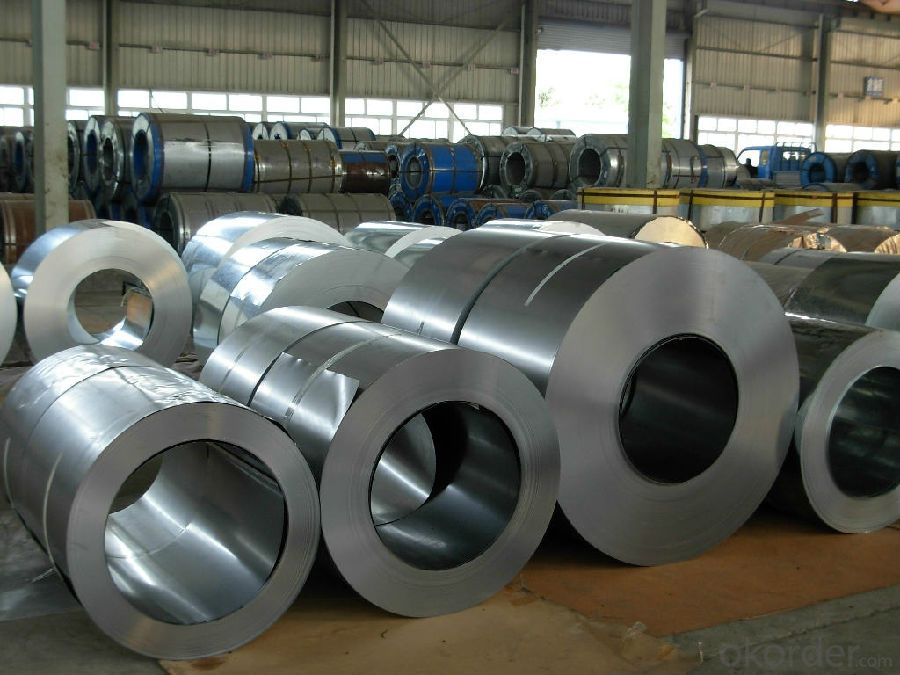
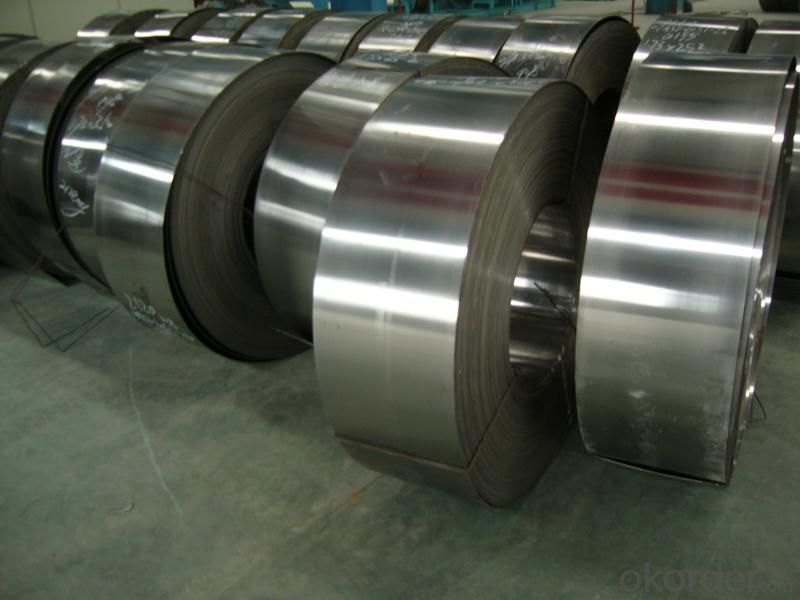
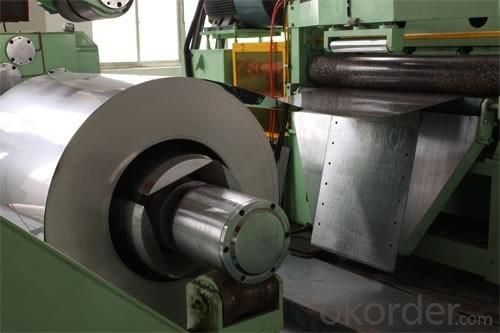
4.Cold Rolled Steel Specification
Standard:AISI,ASTM,DIN,GB,JIS,JIS G3302 ASTM 653M EN10142
Grade: Q195~Q345
Thickness: 0.16mm~2.0mm
Width: 1250mm MAX
Coil weight:3-12 MT
Coil ID:508/610mm
Chemical composition:
C | Si | Mn | Cr | Ni | P | S |
0.150 | 0.476 | 11.231 | 12.50 | 0.900 | 0.039 | 0.010
|
5. FAQ of Cold Rolled Steel
1.How to guarantee the quality of the products?
We have established the international advanced quality management system,every link from raw material to final product we have strict quality test;We resolutely put an end to unqualified products flowing into the market. At the same time, we will provide necessary follow-up service assurance.
2. How long can we receive the product after purchase?
Usually within thirty working days after receiving buyer’s advance payment or LC. We will arrange the factory manufacturing as soon as possible. The cargo readiness usually takes 15-25 days, but the shipment will depend on the vessel situation.
- Q: Why is iron used to create steel? Why not other elements?
- iron came before steel. iron is what was discovered that, under certain circumstances, became a stronger metal: steel. that is why. its like asking why copper is in bronze. because what we call bronze, is an alloy of copper and tin. if you give a more detailed question, i may be able to give a more detailed answer.
- Q: PLEASE PLEASE PLEASE!!!!!!!! HELP MEEEEEEEE!!!!!!! I need to know how can i prevent steel from rusting when it is exposed to water or salt water or vinegar. PLEASE TELL ME A LOT OF WAYS THAT I COULD PREVENT IT!!!!!!!!!!!!!!!!!!!!!!!!!!!!!!!!!!!!!!
- rust is oxidation . remove contact with O2 , it wont rust . you can place it in a oxygen free atmosphere , you could plate it with zinc or chrome , you can use a lead based paint .
- Q: What are the dimensions of steel coils used in the building materials industry?
- The dimensions of steel coils used in the building materials industry can vary depending on the specific application and requirements. However, common dimensions for steel coils used in this industry typically range from 0.5mm to 3mm in thickness and 600mm to 1500mm in width. The length of the coil can vary depending on the manufacturer and customer specifications. It is also important to note that the weight of the coil can vary, with typical weights ranging from a few hundred kilograms to several tonnes, depending on the size and thickness of the coil. Ultimately, the dimensions of steel coils in the building materials industry are determined by the specific needs and specifications of the construction projects they are intended for.
- Q: What are the different methods of cut-to-length shearing for steel coils?
- There are several methods of cut-to-length shearing for steel coils, each with its own advantages and applications. Some of the commonly used methods are: 1. Rotary Shearing: This method involves the use of a rotating shear blade that cuts through the coil. It offers high precision and can handle a wide range of material thicknesses. Rotary shearing is suitable for high-volume production and can achieve high cutting speeds. 2. Guillotine Shearing: In this method, a straight blade is used to cut through the coil. It is a versatile method that can handle various material thicknesses and widths. Guillotine shearing is relatively simple and efficient, making it a popular choice for many applications. 3. Slitting: Slitting involves making multiple longitudinal cuts in the coil to create narrower strips. It is commonly used when a coil needs to be divided into several smaller coils or when narrower strips are required for specific applications. Slitting can be done using either rotary or straight blades. 4. Laser Cutting: Laser cutting utilizes a high-powered laser beam to melt or vaporize the material, resulting in a clean and precise cut. It is ideal for cutting complex shapes or patterns and can handle both thin and thick steel coils. Laser cutting offers high accuracy and minimal material distortion. 5. Waterjet Cutting: Waterjet cutting uses a high-pressure stream of water mixed with abrasive particles to cut through the coil. This method is suitable for a wide range of materials, including steel, and can achieve high accuracy. Waterjet cutting is often used for cutting thick coils or when heat-affected zones need to be minimized. Each method has its own strengths and limitations, and the choice depends on factors such as material thickness, required precision, production volume, and specific application requirements. The selection of the most appropriate method is crucial to ensure efficient and high-quality cut-to-length shearing for steel coils.
- Q: is broken steel the only fallout dlc that will raise the level cap from 20 to 30? also do i have to complete the main quest to play it? which fallout dlc do you think would be the best to get?
- Yes, Broken Steel is the only DLC that raises your level cap. Yes, you have to complete the main quest to play it. It's kind of a prologue to the events of the ending. If you don't have the DLC and complete the game it just ends and you can't play it anymore. With the DLC you'll be able to continue playing. As for which one to get, that's your preference. Most people like the Broken Steel because it has to do with the main story and it raises the level cap - so that's the one I'll suggest to you. I also think The Pitt and Point Lookout are worth getting as well. Mothership Zeta is the one I liked least. I thought it was kind of stupid, to be honest. Operation Anchoarge is a simulation and it's pretty fun, but I don't think it's worth the $9.99.
- Q: How do steel coils affect the quality of finished products?
- Steel coils can greatly impact the quality of finished products in various industries. One of the key ways steel coils affect product quality is through their dimensional accuracy and consistency. When the steel coils are not properly manufactured or have irregular dimensions, it can lead to issues in the production process and result in finished products that do not meet the desired specifications. Furthermore, the surface quality of steel coils is critical in determining the final appearance and performance of the finished products. Coils with surface defects, such as scratches, rust, or unevenness, can negatively impact the aesthetic appeal of the products, making them less desirable to customers. Moreover, these defects can also affect the functionality and durability of the finished products, leading to potential failures or reduced lifespan. The mechanical properties of steel coils also play a vital role in determining the quality of finished products. Coils with inconsistent or inadequate mechanical properties can compromise the strength, toughness, and overall performance of the end products. For example, in industries such as automotive or construction, where strength and reliability are crucial, the use of steel coils with the wrong mechanical properties can lead to safety hazards or structural failures. Additionally, the chemical composition of steel coils can significantly influence the quality of finished products. The presence of impurities or variations in the alloying elements can affect the material's corrosion resistance, weldability, and other essential properties. This, in turn, can impact the longevity and functionality of the final products. In summary, steel coils have a substantial impact on the quality of finished products. Their dimensional accuracy, surface quality, mechanical properties, and chemical composition all contribute to the overall performance, appearance, and durability of the end products. Therefore, it is crucial to ensure that steel coils used in manufacturing processes meet the desired standards to achieve high-quality finished products.
- Q: How do steel coils contribute to the construction machinery industry?
- The construction machinery industry relies heavily on steel coils, which are indispensable for the manufacturing of heavy-duty equipment. These coils play a pivotal role in the creation of structural components, such as beams, plates, and tubes, which form the framework of construction machinery. The exceptional strength and durability of steel make it the perfect material for these applications, as it can withstand immense loads and harsh working conditions. Furthermore, steel coils are crucial in the production of various mechanical parts and components used in construction machinery. These include gears, shafts, axles, and hydraulic system components. Steel's versatility allows it to be easily machined and shaped into intricate forms, enabling the production of efficient and reliable machinery parts. In addition to its mechanical properties, steel coils contribute to the construction machinery industry through their resistance to corrosion. Construction machinery is often exposed to moisture, chemicals, and other environmental factors that can lead to rust and deterioration. Steel coils with appropriate coatings or finishes provide an effective safeguard against corrosion, ensuring the longevity and performance of construction machinery. Moreover, the construction machinery industry favors steel coils due to their availability and affordability. Steel is widely manufactured and can be sourced from multiple suppliers, ensuring a consistent supply chain. Its cost-effectiveness compared to alternative materials makes it an attractive choice for manufacturers, enabling them to produce machinery at competitive prices. In conclusion, steel coils are indispensable to the construction machinery industry, offering strength, durability, corrosion resistance, and cost-effectiveness. Their utilization in the fabrication of structural components and mechanical parts guarantees the reliability and efficiency of construction machinery, contributing to the prosperity and advancement of the industry.
- Q: How do steel coils contribute to the automotive aftermarket?
- The automotive aftermarket heavily relies on steel coils to manufacture a wide range of automotive parts and components. This secondary market deals with the sale of vehicle parts, accessories, and services after the initial purchase of the vehicle. Steel coils find their application in the production of several automotive aftermarket products, including springs, suspension components, chassis parts, and body panels. These coils are typically made from top-notch steel alloys that possess the desired characteristics of strength, durability, and performance. Springs are one of the primary uses of steel coils in the automotive aftermarket. These coiled springs play a crucial role in various automotive systems like suspension, brakes, and clutches. They provide the necessary support, stability, and shock absorption to ensure smooth and safe vehicle operation. Not only that, but steel coils also contribute to the manufacturing of chassis parts, which are vital for maintaining the vehicle's structural integrity and safety. Chassis parts made from steel coils include frame components, cross members, and reinforcement panels, which greatly enhance the overall stability and durability of the vehicle. Moreover, steel coils are extensively utilized in the production of body panels, such as doors, hoods, fenders, and roofs, which are commonly replaced or customized in the automotive aftermarket. These body panels, manufactured from steel coils, not only enhance the vehicle's aesthetics but also provide protection and resistance against impacts. In conclusion, steel coils play a critical role in the automotive aftermarket by facilitating the production of various parts and components necessary for vehicle repair, customization, and improvement. Their high strength, durability, and versatility make them an indispensable raw material, perfectly meeting the demanding requirements of the automotive industry.
- Q: What is the average flatness tolerance for steel coils?
- The average flatness tolerance for steel coils can vary depending on the specific industry and application. However, a common industry standard for flatness tolerance in steel coils is typically around 0.25% to 0.5% of the coil width.
- Q: What are the common sizes of steel coils?
- The common sizes of steel coils vary depending on the specific needs and requirements of different industries. However, there are some standard sizes that are commonly used in the steel manufacturing and processing sectors. These include: 1. Slit Coils: Slit coils are typically smaller in size and are commonly available in widths ranging from 0.5 inches to 72 inches. The weight of slit coils varies, but it is usually between 1000 pounds to 50,000 pounds. 2. Master Coils: Master coils are larger in size and are typically used in steel processing facilities to produce various steel products. The width of master coils usually ranges from 36 inches to 96 inches, while the weight may vary from 5,000 pounds to 60,000 pounds. 3. Sheet Coils: Sheet coils are often used in construction, automotive, and appliance manufacturing industries. The standard sizes for sheet coils vary, but they are commonly available in widths of 48 inches, 60 inches, and 72 inches, with lengths ranging from 96 inches to 240 inches. 4. Plate Coils: Plate coils are primarily used in heavy-duty applications such as shipbuilding, bridge construction, and pressure vessel manufacturing. The sizes of plate coils are typically larger, with widths ranging from 36 inches to 96 inches, and lengths varying from 96 inches to 480 inches. It is important to note that these sizes are not fixed and can be customized based on specific customer requirements. Steel manufacturers and suppliers often have the capability to produce coils in various sizes to meet the diverse needs of their clients.
Send your message to us
Cold Rolled Steel Coil JIS G 3302 -Chinese Best Every Size
- Loading Port:
- China main port
- Payment Terms:
- TT OR LC
- Min Order Qty:
- 50 m.t.
- Supply Capability:
- 10000 m.t./month
OKorder Service Pledge
OKorder Financial Service
Similar products
Hot products
Hot Searches
Related keywords
